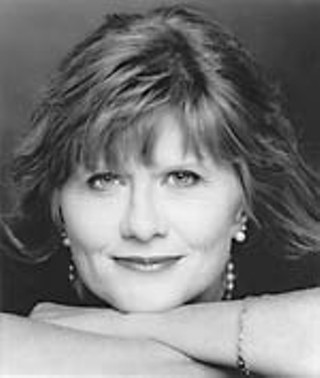Women on Fire: Six of one, Ivey's dozen of the other
Tony Award winner and Lone Star native Judith Ivey discusses the challenges of portraying a dozen characters in the one-woman monologue show 'Women on Fire'
By Robert Faires, Fri., Oct. 6, 2006

Although Judith Ivey hasn't lived in Texas for many years, the state won't loosen its claim on the actress. Houston's Alley Theatre brought her back to play Martha in a revival of Who's Afraid of Virginia Woolf? four years ago and to direct a run of Steel Magnolias last year. Between those gigs, KERA in Dallas lured her home to play Margo Jones in a PBS special on the regional theatre pioneer. And in 2004, she made a trip to the capital city to be inducted into the Texas Film Hall of Fame. Now, the two-time Tony Award-winner is back in town to perform the 12-character monologue show Women on Fire, which she starred in off-Broadway in 2003 and has been touring successfully across the country since. From New York, where her latest directorial assignment, Kathleen Clark's Southern Comforts, was heading into previews, Ivey spoke to the Chronicle about the singular challenges of playing a dozen characters in a single night.
Austin Chronicle: With Women on Fire, instead of inhabiting one character, you get inside the skins of several different women. What aspects of your craft do you have to draw on that you usually don't?
Judith Ivey: The ability to jump from one to the other and discard one before you get into the next one. I do it rather quickly. It's what audience members comment on: "My God, how do you do that?"
AC: What do you tell them?
JI: I have a picture in my head of what that woman looks like, and when I'm moving into that woman, I put that picture on me. Because I don't change my hair, and I don't change my clothes. I pick up a prop here and there, but it's more about your voice and carriage and the way you speak. But most importantly, I see that face on my face. Because I'm playing everything from a Midwestern housewife to an African-American construction worker. And, you know, I look much more like the Midwestern housewife [laughs]. So I need that imagery for myself, to transform and take on the characteristics of that character.
AC: Did you feel an immediate connection to these women?
JI: Not at all. In fact, when I first started doing this, … the director and the playwright felt that the African-American construction worker was very important and that I could do it, and I thought I couldn't. So I said, "Let me just go off and find this on my own, and then I'll bring it in and do my version, and you tell me whether or not it's worth it to keep working on it." So that's what I did, and they loved it. In fact, audiences love it. They single her out because she has such a great message, and they like watching somebody who doesn't remotely resemble this woman become this woman. There were some others that I found difficult, and in the end we cut them because there were too many ballads and not enough up-tempos. [laughs]
AC: Are there things you're still learning about these women three years into playing them?
JI: Yes. When there are 12 of them, they take on import in various configurations. There are some that come to you more naturally, so to keep it alive and not just do it because the muscle is so much your own muscle, you start exploring it. Then you realize, "Oh, I hadn't looked at that sentence before." Then those that are more of a stretch, to keep stretching out and making yourself go there is what keeps it alive. And for some reason, some all of a sudden take on more import because of whatever is going on in my own life, and then it will shift again.
AC: Do you enjoy being onstage by yourself?
JI: Sometimes. It is a lonely place, and sometimes you don't want to be up there by yourself. Of course, the energy level and the concentration is enormous in order to be able to get through the show. It's all on your shoulders. But I did a revival of The Subject was Roses this past January with Bill Pullman, and there are only three people in that, and in a funny way, it's just as demanding, because of course, you are there for that other actor or two other actors in a way that you don't have to be when it's just you. So it's kind of six of one, half a dozen of the other. There are times when I don't want to do it by myself, when I want somebody up there with me because it's more fun. I love when you're cooking [with another actor]. Some of my favorite moments I've had on stage were with Bill in that piece. We're not actors who spend a lot of time talking about what we're going to do. We certainly talk about characters and stuff, but the doing of it – we just get up and do it. That's what I like to do, and he's the same way. Just fabulous moments where you thought, "Oh, this is why I wanted to be an actress!" So thrilling!
Women on Fire runs Oct. 12-14, Thursday-Saturday, 8pm, Saturday, 2pm, at the Paramount Theatre, 713 Congress. For more information, visit www.austintheatre.org.








